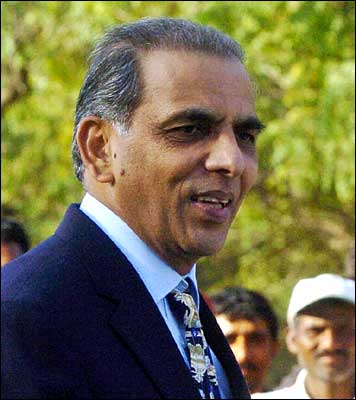 The United States is losing faith that Pakistan President Pervez Musharraf can survive in office, a report has said.
The United States is losing faith that Pakistan President Pervez Musharraf can survive in office, a report has said.
Senior US officials said the Bush Administration has begun discussing what might come next, a detailed report in the New York Times said.
If Musharraf is forced from power, the report said, it would most likely be in a gentle push by fellow officers, who would try to install a civilian president and push for parliamentary elections to produce the next prime minister, perhaps even Bhutto, despite past strains between her and the military.
But removing the general might not be that easy, the report quoted diplomats as saying.
Army generals are unlikely to move against General Musharraf unless certain "red lines" are crossed, such as countrywide political protests or a real threat of a cutoff of American military aid to Pakistan.
Citing that Pakistan's cadre of elite generals, called the corps commanders, have long been kingmakers inside the country, the report said General Ashfaq Pervez Kiyani, General Musharraf's designated successor as army chief, a moderate, pro-American infantry commander, is widely seen as commanding respect within the army and, within Western circles, as a potential alternative to General Musharraf.
The report also said the administration officials said they were also dismayed that General Musharraf last week released 25 militants in exchange for 211 soldiers captured by militants in August.
In meetings on Wednesday, officials at the White House, State Department and the Pentagon huddled to decide what message Deputy Secretary of State John D Negroponte would deliver to Musharraf -- and perhaps more important, to Pakistan's generals -- when he arrives in Islamabad on Friday.
The report said the administration hopes to salvage the fractured relations between General Musharraf and former prime minister Benazir Bhutto.
But in Pakistan, foreign diplomats and aides to both leaders said the chances of a deal between the leaders were evaporating 11 days after General Musharraf imposed a state of emergency.
Several senior administration officials said that with each day that passed, more administration officials were coming around to the belief that General Musharraf's days in power were numbered and that the United States should begin considering contingency plans, including reaching out to Pakistan's generals.
The report said officials involved in the discussions in Washington said the Bush administration remained wary of the perception that the United States was cutting back-room deals to install the next leader of Pakistan.
Image: General Ashfaq Pervez Kiyani, who is seen as the man who will replace President Musharraf if steps down as army chief.
Photograph: Asif Hassan/AFP/Getty Images





